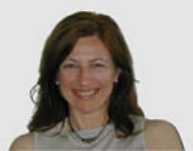| Keynote lecture |
| "Advances in semiconductor detectors for particle tracking in extreme radiation environments" |
In the future high luminosity Hadron Colliders such as the LHC (Large Hadron Collider) presently under construction at CERN (European Organization for Nuclear Research) in Geneva, the semiconductor detectors close to the beam interaction point will be exposed to very high fluences (>10^15 particle /cm^2) during their life span. Such detectors are key to the disentanglement of important decay events and it is vital to guarantee a homogeneous reliable performance during their operation. Parameters like charge collection efficiency (CCE), signal to noise ratio (S/N) and speed will be discussed. Limitations of present technologies will be analysed and future strategies explored. Results obtained by using alternative detector designs, such as 3D geometries, material engineering by oxygen diffusion and unconventional operational conditions will be presented.
|
Cinzia Da Via'
Electronics and Computer Engineering Dept.
Brunel University, UB8-3PH
Uxbridge UK
Tel +44 1895 816284
Fax +44 1895 259728
e-mail cinzia.davia@brunel.ac.uk |
 |
Cinzia Da Via' obtained her PhD in Applied Physics from the University of Glasgow in 1998 on Semiconductor Pixel Detectors for High Energy Physics and Medicine. Presently she is a Lecturer in the Electronic and Computer Engineering Department at Brunel University, UK. She has been working on Si and GaAs detectors for high-energy physics and medical applications since 1994 and she is involved in the study of 3D silicon structures to improve the X-ray detection efficiency for radiology and protein crystallography. She is a member of the CMS experiment at CERN, where she spends a great part of her research time.
Her present main field of research is devoted to the study of new techniques to improve the radiation hardness of silicon detectors including defect engineering, by introduction of impurities in the material, operational conditions, and detector design, like for example 3D structures. She is co-discoverer of the radiation hard properties of heavily irradiated silicon when operated at cryogenic temperatures, and convener of the Basic Studies Group of the CERN-RD39 Collaboration. She coordinates a European Network on radiation effects in silicon and silicon devices and is one of the authors of a CERN proposal to study ultra-radiation hard detectors for high luminosity colliders. She participates in the organisation of several schools and workshops on Radiation Hard Semiconductor Technologies.
|
